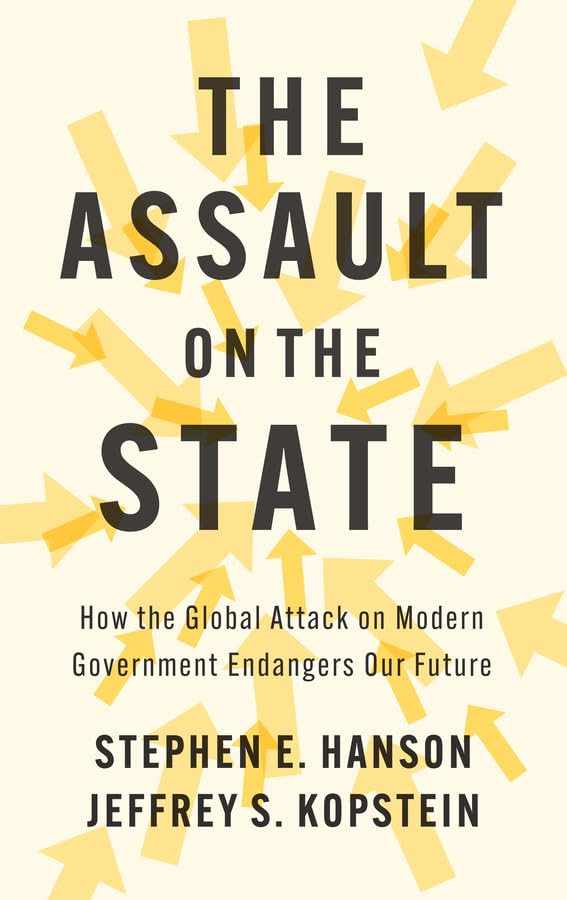
Once again, William & Mary’s Swem Library will be the launchpad of an important book.
Ryan A. Musto, director of forums and research initiatives at William & Mary’s Global Research Institute, informed the college community that the GRI is hosting the launch of the book, “The Assault on the State: How the Global Attack on Modern Government Endangers our Future.”
W&M professor Stephen Hanson and University of California, Irvine professor Jeffrey Kopstein authored the book and, according to Musto, “offer an impassioned plea to defend modern government against those who seek to destroy it.”
Quoting the authors, Musto poses the question: “What if the state as we know it didn’t exist? Our air would be poisonous, our votes uncounted and our markets dysfunctional. Yet across the world, in countries as diverse as Hungary, Israel, the UK, and the U.S., attacks on the modern state and its workforce are intensifying. The dangers of state erosion imperil every aspect of our lives.”
Both authors will join the Global Research Institute on Thursday for a conversation about the book. The event is scheduled for 5:30 p.m. in the the Hive Event Space on the ground floor of the library.

I asked professors Hanson and Kopstein, what is the message they would like to convey to their audience at William & Mary?
“There has been a great deal of attention paid to the decline of democracy around the world,” they replied together. “We share this concern, but taking a broader historical perspective shows that an even graver political threat now faces us, the global erosion of the modern state institutions governed by the rule of law and the reestablishment of a much older form of personalistic government.”
They quoted the great German sociologist Max Weber, who called it patrimonialism: rule by traditional father figures who run the state as a kind of “family business.” Promoting their family members and loyalists over professionals and experts.
“We show how this threat emerged from Russia and has since diffused around the world,” Hanson said.
The motivating force for writing their book was, the authors said, that our state institutions are under attack and that without them there wouldn’t be effective safeguards.
Significantly, it was the “canary in the coal mine,” that triggered the authors’ interest in the subject of the importance of the role of experts in governance.
“Everyone remembers well the attack on public health professionals during the COVID-19 pandemic,” they said. “All of us watched President Trump sideline his own professionals and issue wild and unsound advice. But this is only the tip of the iceberg: attacks on climate science and the EPA are well known. Less well known are attacks on food science, financial regulatory agencies, the judiciary, intelligence agencies and the military.”
The authors continued: “These attacks have occurred on not only in the U.S., but also all over the world where personalistic rulers come to power. The result is decaying infrastructure and inattention to problems that could threaten not only our democracy but the survival of the species.”
Hansen and Kopstein maintain that the modern, impersonal state is a gigantic achievement in human affairs, but a new brand of rulers — both democratic and undemocratic — has questioned its value.
The attacks, the authors say, are morphing into power grabs by self-aggrandizing politicians who attempt to seize control of the state for themselves and their cronies.
“The dangers of state erosion imperil every aspect of our lives,” the authors argue. “We outline a strategy that can reverse this destructive trend before humanity is plunged back into the pathological personalistic politics of pre-modern times.”
Frank Shatz is a Williamsburg resident. He is the author of “Reports from a Distant Place,” the compilation of his selected columns. The book is available at the Bruton Parish Shop and Amazon.com.





